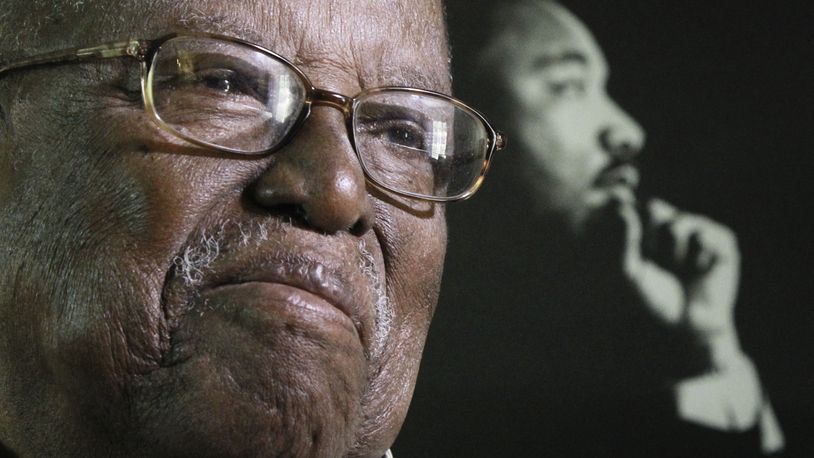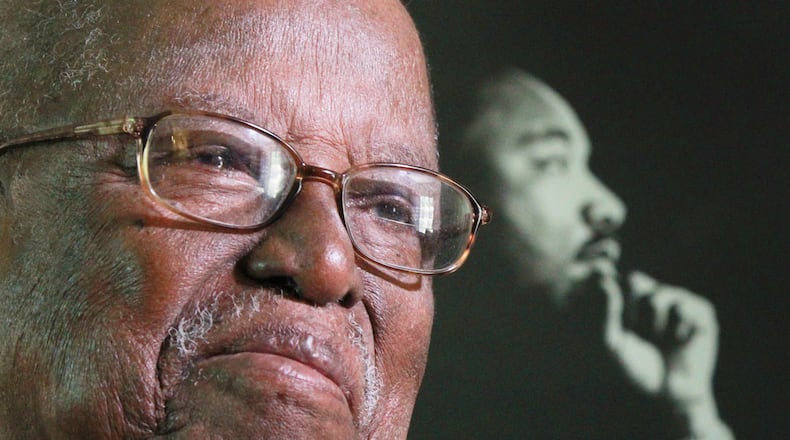In Dayton, he quickly recognized that if you were Black, the hiring at downtown stores was nil and Black shoppers couldn’t use bathrooms in downtown stores or eat at downtown lunch counters. Those social insults lit a fire in his spirit. “I knew I couldn’t make a change unless I helped others make a change. I was determined to fight back.”
Over the years in the 1950s and 60s, Gooding led groups to picket Rike’s Department Store, Famous Clothing Store and Liberal Markets, forcing the local companies to hire Black counter clerks and to open their bathroom stalls for everyone’s use. Using sit-ins to shed a light on how Blacks were being treated, he was arrested for nonviolently “disturbing the peace” more than once.
Serving twenty years as president of the local NAACP, Gooding reflects on the work that was done in the early days of social activism and he worries now about the present political climate. “I’m 95 years old and I am frightened. You can’t maintain the opportunities that we got if you don’t continue to fight.”
You can’t get too comfortable, he says, and you have to maintain your integrity. “I fought my ass off and I didn’t compromise.”
Marsha Bonhart is a veteran of radio and television news, stemming from her days working in Toledo, Ohio, Dayton, and Los Angeles. Retired as the director of media and public relations for Dayton Public Schools, she handles PR and media for local clients.
Black Excellence in the Miami Valley

To conclude Black History Month, we reached out for examples of Black excellence in the Miami Valley as told by members of our communities. Hear from contributors tell the stories of these individuals and organizations, past and present, that exemplify some of the best qualities our region has to offer.

